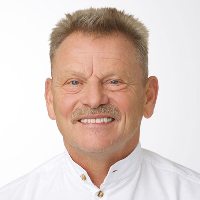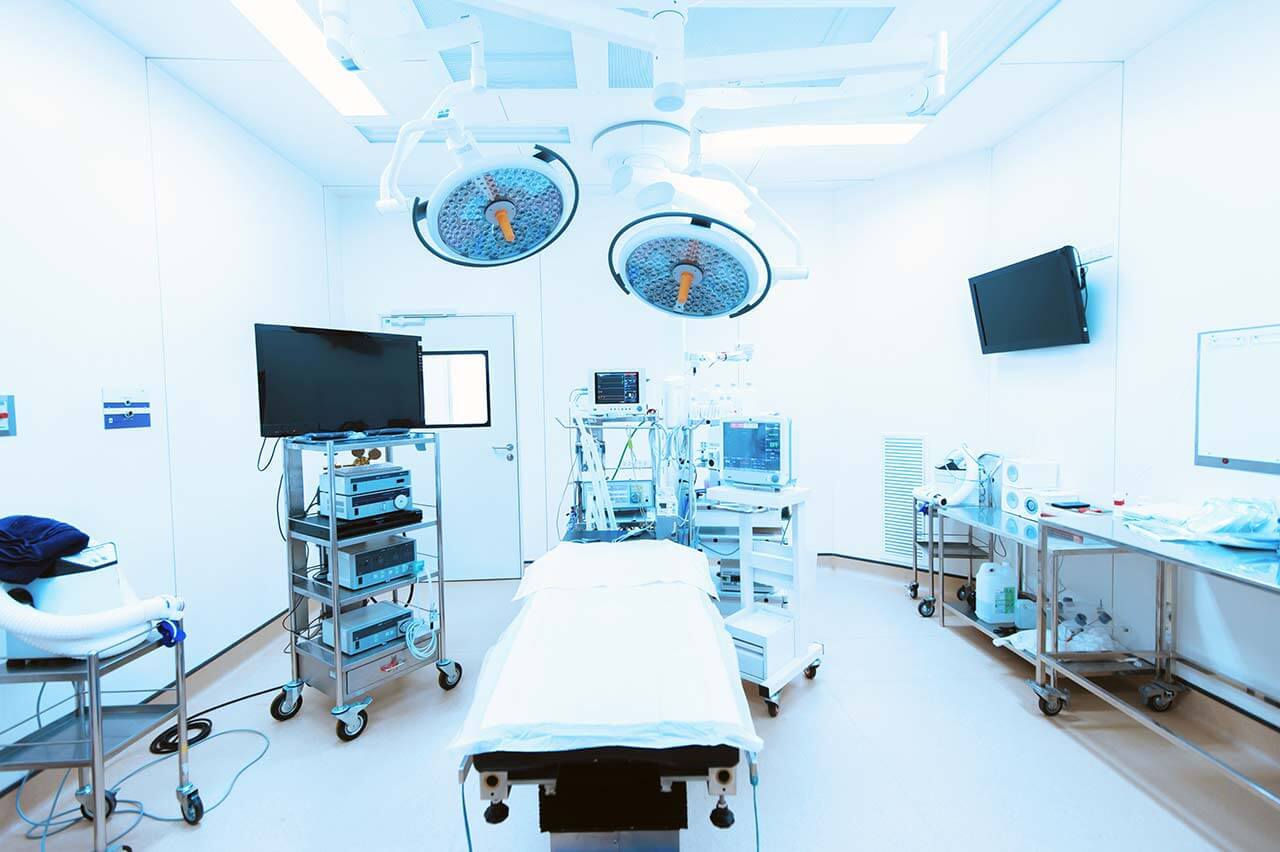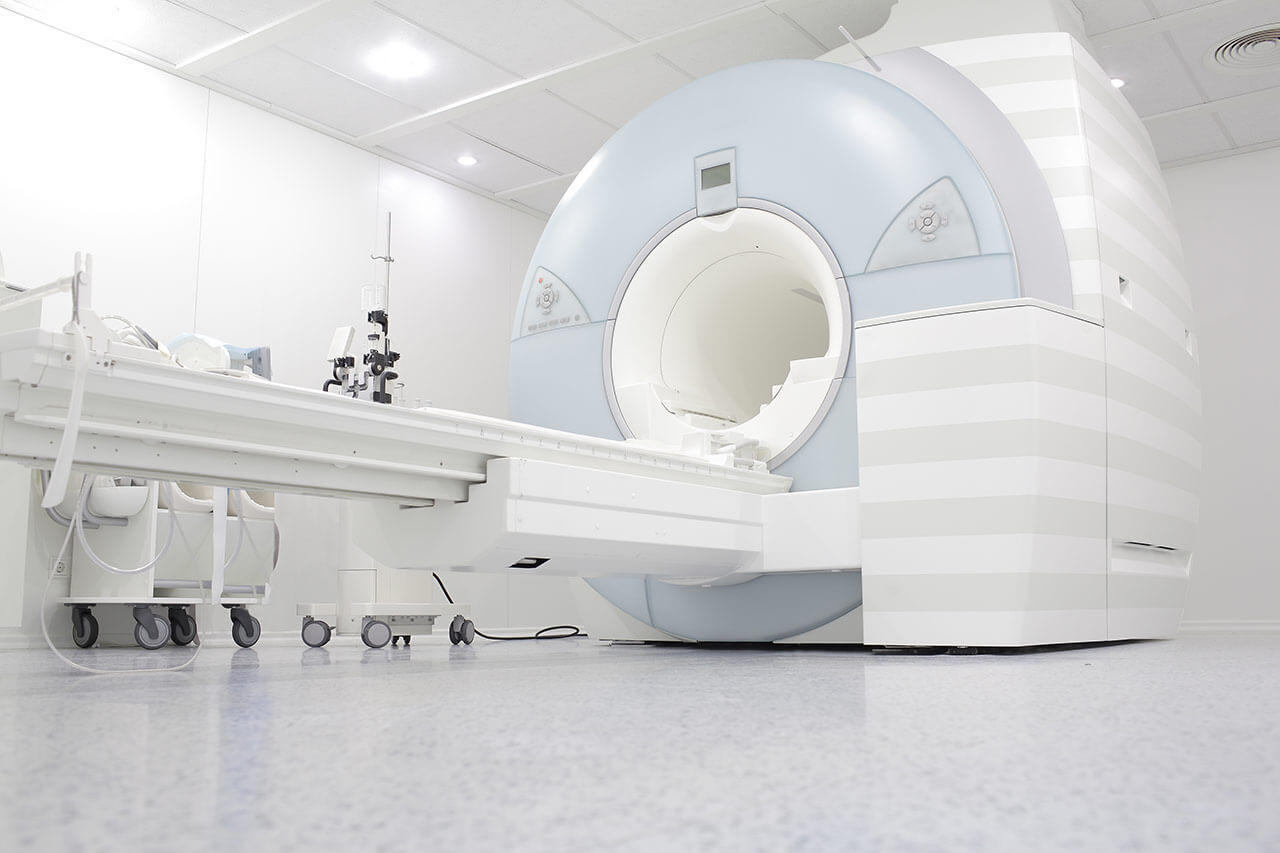
The program includes:
- Initial presentation in the clinic
- clinical history taking
- physical examination
- review of medical records
- laboratory tests:
- complete blood count
- general urine analysis
- biochemical analysis of blood
- indicators of inflammation (CRP, ESR)
- indicators blood coagulation
- x-ray examination of the hip
- MRI scan of the hip
- preoperative care
- hip replacement (hip endoprosthesis)
- symptomatic treatment
- control examinations
- physiotherapeutic procedures
- orthopedic appliances
- the cost of essential medicines and materials
- nursing services
- full hospital accommodation
- explanation of future recommendations
How program is carried out
Preliminary preparation for hip replacement includes quitting smoking and drinking alcohol; cancelling non-steroidal anti-inflammatory drugs (diclofenac, ibuprofen); cancelling anticoagulants (warfarin); normalization of body mass, if possible.
Preoperative examination, including consultation with an anesthesiologist and necessary related specialists, takes 1-2 days. According to its results, the most suitable endoprosthesis is selected.
Hip replacement. The operation is performed under general anesthesia. The patient lies on his side, the affected leg is bent and fixed in this position. The surgeon makes an incision 15-20 cm long, minimally traumatizing the muscles and nerve endings. Through this incision, miniature instruments are inserted to remove the damaged joint structures. Healthy bone is adjusted for further reliable implant fixation.
The surgeon installs a femoral stem in the center of the upper part of the femur. Ball-shaped head of the joint is fixed on it. The surgeon also implants a special liner that facilitates movement of the leg and protects the structures of the prosthesis. After the primary fixation of the prosthesis components, the doctor assesses the joint range of motion, as well as the length and symmetry of the lower limb.
The implant is fixed with cement or cementless method. The doctor treats the operating field with antiseptics, conducts its final revision and sutures the wound layer by layer. A temporary drainage is installed in the joint, and a bandage is applied on top.
Postoperative care. During the first day after the intervention the patient stays in the intensive care unit, under round-the-clock medical supervision. After that, with a smooth course of the postoperative period, the patient is transferred to a regular ward and the drains are removed. The range of motion expands gradually, from light toes movements to walking. Walking with the use of walking aids is allowed in 3-5 days after the operation.
Required documents
- X-ray examination of the hip joints
- MRI scan of the hip joints, if available
Service
You may also book:
 BookingHealth Price from:
BookingHealth Price from:
About the department
The Department of Adult and Pediatric Orthopedics, Foot Surgery and Hand Surgery at the ATOS Clinic Heidelberg offers the full range of medical services in its areas of specialization. The primary clinical interest for the department's doctors is the treatment of diseases of the hip, knee, shoulder, elbow, and ankle joints. Patients with pathologies and deformities of the foot and hand can also receive medical care in the department. Specialists treat patients of all age groups, ranging from young children to the elderly. The department has all the necessary resources for conservative and surgical treatment. Conservative measures are used as the first-line treatment. These include exercise therapy, physiotherapy, massage, drug therapy, intra-articular injections, etc. Surgery for orthopedic diseases are performed only in complex clinical cases because many of them respond well to conservative treatment in the early stages. Surgical procedures are performed in advanced operating rooms using sparing arthroscopic, microsurgical, and minimally invasive techniques. According to the magazine Focus, the medical facility is one of the best orthopedic centers in Germany, specializing in large joint surgery, foot surgery, and hand surgery. The Head Physician of the department is Prof. Dr. med. Hajo Thermann.
Patients with arthrosis seek medical attention from the department almost every day. This chronic disease causes gradual deterioration of the cartilage lining of the joint, resulting in pain and limited mobility. The department's team of orthopedists specializes in the treatment of hip, knee, shoulder, elbow, ankle, and wrist arthrosis. Hip and knee arthrosis are the most common. The department's doctors have at their disposal many effective conservative treatments to slow down joint degeneration, eliminate pain, and improve mobility. The department's specialists develop an optimal treatment regimen for the patient, taking into account the stage of arthrosis, age, general health condition, and other factors. Each patient is prescribed an individually developed drug treatment regimen to relieve pain and a set of exercises and physiotherapeutic procedures. Orthopedists in the department also successfully carry out innovative treatments for hip and knee arthrosis using intra-articular injections of autologous conditioned plasma, hyaluronic acid, and orthokine. This method stimulates the regeneration of the cartilage lining of the joint. In the advanced stages of arthrosis, conservative treatment may fail. In such cases, the department's doctors recommend joint replacement surgery. Such surgical procedures are performed here using minimally invasive techniques that preserve the integrity of the muscular system. The department's orthopedists work exclusively with high-quality prostheses that can last 20 years or more.
The department's therapeutic options also include the treatment of other hip and knee diseases, such as hip impingement, femoral head avascular necrosis, hip dysplasia, patellar dislocation, meniscus tears, cruciate ligament tears, etc. The above pathologies cause severe pain and limited mobility. In many cases, the department's doctors resort to conservative treatment. The patient is prescribed therapeutic exercises, physiotherapy, drug therapy, wearing orthoses, electrotherapy, and other procedures. Complex clinical cases require surgical treatment. The operations are performed using minimally traumatic arthroscopic techniques: two 5-6 mm incisions are made in the area of the affected joint, through which an arthroscope (a special thin and long instrument) with a built-in miniature camera is inserted. The camera transmits images of the surgical field to the monitor in real time with multiple zooms, allowing the surgeon to clearly see the smallest anatomical structures of the joint and perform the necessary therapeutic manipulations. Depending on the severity of the clinical case, the duration of the arthroscopic procedure is 30-90 minutes. These procedures leave no scarring, and patients are back on their feet the same day.
An integral part of the work of the department's orthopedists is the treatment of shoulder pathologies. Our specialists have been caring for patients with shoulder impingement syndrome, shoulder arthrosis, rotator cuff tears, shoulder dislocations, frozen shoulder, and shoulder injuries for over 20 years. Few medical centers can boast such extensive experience in this area. Shoulder impingement syndrome is one of the most common causes of shoulder pain. The pathology results from an improper collision of the acromioclavicular joint and the humeral head. The department offers both conservative and surgical methods for the treatment of impingement syndrome. Whenever possible, doctors carry out comprehensive conservative treatment that includes injection therapy with painkillers and anti-inflammatory drugs, physiotherapy, electrotherapy, and cryotherapy. If, based on the results of preliminary diagnostics, the patient requires surgery, the department's physicians perform a minimally invasive arthroscopic surgery that lasts 30-60 minutes.
The department also enjoys a reputation as one of the best medical institutions for the treatment of hand diseases. Patients with wrist arthrosis, rhizarthrosis, carpal tunnel syndrome, Dupuytren's contracture, and trigger fingers can be treated here. The treatment for wrist arthrosis in the department includes drug therapy, manual therapy, ultrasound therapy, laser therapy, and electrophoresis. The last-line treatment is surgery. Therapy for rhizarthrosis also begins with conservative measures. For example, the patient is prescribed cryotherapy, electrotherapy, intra-articular injections of hyaluronic acid or corticosteroids, or immobilization of the thumb with splints. In the advanced stages of the pathological process, the department's specialists recommend surgical procedures, such as denervation of the first carpometacarpal joint, resection arthroplasty, or arthrodesis. The optimal type of surgical intervention is determined individually.
The department's clinical focuses include the following:
- Orthopedics
- Treatment of hip diseases
- Conservative and surgical treatment of hip arthrosis
- Conservative and surgical treatment of hip impingement
- Conservative and surgical treatment of femoral head avascular necrosis
- Conservative and surgical treatment of hip dysplasia
- Conservative and surgical treatment of periprosthetic hip fractures
- Treatment of knee diseases
- Conservative and surgical treatment of knee arthrosis
- Conservative and surgical treatment of knee cartilage lesions
- Conservative and surgical treatment of patellar dislocations
- Conservative and surgical treatment of meniscus tears
- Conservative and surgical treatment of cruciate ligament ruptures
- Treatment of shoulder diseases
- Conservative and surgical treatment of shoulder impingement syndrome
- Conservative and surgical treatment of shoulder arthrosis
- Conservative and surgical treatment of rotator cuff tears
- Conservative and surgical treatment of shoulder dislocations
- Conservative and surgical treatment of frozen shoulder
- Conservative and surgical treatment of shoulder injuries
- Treatment of elbow diseases
- Conservative and surgical treatment of epicondylitis
- Conservative and surgical treatment of radial head fractures
- Conservative treatment and surgical removal of loose articular bodies
- Conservative and surgical treatment of elbow dislocations
- Conservative and surgical treatment of elbow instability
- Conservative and surgical treatment of elbow arthrofibrosis
- Treatment of hip diseases
- Hand surgery
- Conservative and surgical treatment of wrist arthrosis
- Conservative and surgical treatment of rhizarthrosis
- Conservative and surgical treatment of carpal tunnel syndrome
- Conservative and surgical treatment of Dupuytren's contracture
- Conservative and surgical treatment of trigger fingers
- Foot surgery
- Conservative and surgical treatment of ankle arthrosis
- Conservative and surgical treatment of hallux valgus and hallux rigidus
- Conservative and surgical treatment of Achilles tendon ruptures
- Conservative and surgical treatment of heel spurs
- Conservative and surgical treatment of clubfoot
- Conservative and surgical treatment of flat feet
- Conservative and surgical treatment of claw toes
- Other therapeutic options
The department's range of therapeutic options includes the following:
- Conservative treatment
- Drug treatment with pills
- Intra-articular injections of autologous conditioned plasma, hyaluronic acid, and orthokine
- Therapeutic exercises
- Electrotherapy
- Shockwave therapy
- Magnetotherapy
- Laser therapy
- Ultrasound therapy
- Cryotherapy
- Heat therapy
- Manual therapy
- Treatment with orthoses
- Surgical treatment
- Arthroscopic procedures
- Microsurgical procedures
- Minimally invasive procedures
- Other treatment methods
Curriculum vitae
Professional Career
- 1986 - 1998 Physician, Department of Trauma Surgery, Hannover Medical School.
- 1990 Board certification in Surgery.
- 1991 Board certification in Trauma Surgery.
- 1993 Habilitation in Trauma Surgery. Subject: "Functional treatment of fresh Achilles tendon rupture: a clinical and experimental study."
- Since 1993 Lecturer, Hannover Medical School.
- 1993 Senior Physician, Department of Trauma Surgery, Hannover Medical School.
- Since 1993 Scientific Director of the Working Group on Foot Surgery, Department of Trauma Surgery, Hannover Medical School.
- 1998 Extraordinary Professorship, Hannover Medical School.
- Since 1998 Head Physician, Department of Adult and Pediatric Orthopedics, Foot Surgery and Hand Surgery, ATOS Clinic Heidelberg.
- Since 2010 Medical Director, ATOS Clinic Heidelberg.
Memberships in Professional Societies
- Since 1989 Member of the German Society of Surgery (DGCH).
- Since 1990 Member of the German Trauma Society (DGU).
- Since 1990 Member of the Working Group on Sports Medicine of the German Society of Surgery (DGCH).
- Since 1991 Member of the Working Group on Ultrasound Diagnostics of the German Society of Surgery (DGCH).
- Since 1994 Board Member of the European Society for Foot and Ankle Surgery (EFAS).
- Since 1995 Member of the Working Group on Foot and Ankle Biomechanics of the American Orthopaedic Foot and Ankle Society (AOFAS).
- Since 1996 Chairman of the Educational Committee of the European Society for Foot and Ankle Surgery (EFAS).
- Since 1997 International Member of the American Orthopaedic Foot and Ankle Society (AOFAS).
- Since 2005 Honorary Member of the Brazilian Society of Foot and Ankle Surgery.
- Since 2007 Honorary Member of the Chinese Society of Foot and Ankle Surgery.
Photo of the doctor: (c) ATOS Klinik Heidelberg
About hospital
The ATOS Clinic Heidelberg is a reputable medical complex with high standards of patient care. The clinic was founded in 1991. Since then, it has taken a leading position in the European medical arena in the treatment of diseases of the musculoskeletal system and many other pathologies. The clinic has a highly professional team of doctors, many of whom are world-renowned professors. Specialists work with state-of-the-art equipment. They use classical and innovative treatment methods with high efficiency. Personalized medical care is a priority in the clinic: doctors carefully study each clinical case and develop individual diagnosis and treatment regimens, taking into account each patient's needs and wishes. Patients not only from Germany but also from other countries of the world regularly seek medical help from the clinic, which indicates the outstanding quality of medical services and the high level of trust patients have in the specialists of the ATOS Clinic Heidelberg.
In addition to providing top-notch medical care, the clinic is distinguished by its modern design. When a patient crosses the threshold of the clinic, he or she has the impression that he or she is not in a medical facility but in a luxury hotel. This idea is part of the clinic's working concept because the patient's comfort and psychological state play an important role in achieving successful treatment outcomes. The clinic offers cozy rest areas where patients can distract themselves from the therapeutic process and socialize. It goes without saying that the equipment in the diagnostic, treatment, and operating rooms is of a very high standard, which enables effective and safe treatment.
Patient care is important throughout the therapeutic process. The nursing staff treats each patient's life situation with respect and compassion and surrounds him or her with care. The doctors are focused on the best results, are always open to communication with the patient, and are happy to answer any questions.
More than 96% of patients rate their treatment experience and the quality of medical care at the ATOS Clinic Heidelberg positively.
It should be noted that the clinic is recognized as one of the best in the country in the field of foot surgery, hand surgery, hip, knee, and shoulder surgery, as well as in the field of spine surgery and aesthetic plastic surgery, according to the rating of Focus magazine.
Photo: (с) depositphotos
Accommodation in hospital
Patients rooms
The patients of the ATOS Clinic Heidelberg stay in single and double rooms. The clinic also offers accommodation in enhanced-comfort patient rooms. The patient rooms are made in light colors and modern design to create a comfortable and cozy atmosphere during the patient's stay in the hospital. The standard rooms are equipped with an automatically adjustable bed, a bedside table, a TV, a telephone, and air conditioning. The rooms have Wi-Fi access. Enhanced-comfort patient rooms are additionally equipped with upholstered furniture, a safe, and a mini-bar.
Meals and Menus
The clinic offers delicious and varied meals three times a day: breakfast is served as a buffet, lunch offers a choice of three set menus, and dinner also offers a choice of several set menus. The menu is mainly European cuisine. If, for some reason, you cannot eat all the foods on the menu, you will be offered an individual menu. Please inform the medical staff about your dietary preferences prior to the treatment.
The clinic also has a cozy cafe with a wide range of hot and cold drinks, cakes, snacks, sandwiches, salads, and hot dishes.
Further details
Standard rooms include:
![]() Toilet
Toilet
![]() Shower
Shower
![]() Wi-Fi
Wi-Fi
![]() TV
TV
Accompanying person
Your accompanying person may stay with you in your patient room or at the hotel of your choice during the inpatient program.
Hotel
You may stay at the hotel of your choice during the outpatient program. Our managers will support you for selecting the best option.




